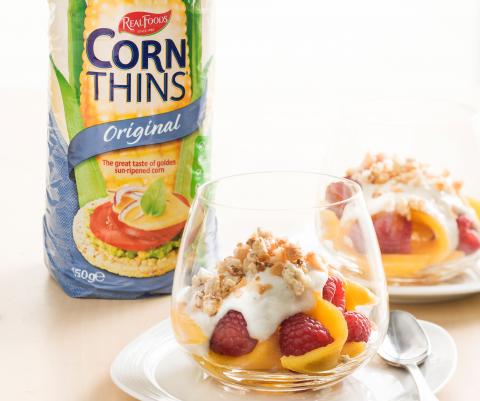Are You Taking Advantage of the Nutrition Power of Yoghurt?

Are you eating a food which gives your body a powerhouse of nutritional benefits? The food which can do this is the underrated yogurt. This food dates back as far as the Bible and the benefits can be said to be just as holy. Yogurt will give your body an amazing number of benefits including:
1. Protein
Not just any protein but high biological value protein. This means it contains ALL the essential amino acids our body needs to build a protein.
2. Calcium
Calcium is important for both keeping your bones strong as well as allowing your muscles to contract properly.
3. Phosphorous
This mineral works with calcium to keep your bones and teeth strong.
4. B vitamins
Yogurt gives your body B1 and B2. Both B vitamins are important to allow your body to break down carbohydrates. Yogurt is also a good source of vitamin B12 which is important for many functions including forming your red blood cells and keeping your central nervous system functioning well.
5. Folate
An important B vitamin which is needed for DNA repair and synthesis.
6. Magnesium
This mineral has many functions including regulating your nerve and muscle function and keeping your blood pressure and sugar levels in healthy ranges.
7. Zinc
Zinc is important for keeping your immune function optimal. Zinc also helps wounds to heal and keeps your skin healthy.
What to Look for:
Be careful when selecting your yogurt. If you opt for a no fat version this can mean lots of added sugar. Check the label to make sure your variety of yogurt has no more than 15g/100g of added sugar and no more than 2g/100g of fat.
Additional benefits to this superfood:
Do you suffer from lactose intolerance? Research suggests the lactose in yogurt is better tolerated than the same amount of milk. Especially if you leave the yogurt in the fridge longer, closer to the ‘use by’ date which allows the probiotics in the yogurt to eat more of the lactose.
Probiotics are good bacteria which help your body in many ways including helping to maintain optimal immune function and gut health as well as to help absorption of nutrients into the body. On top of this probiotics have been linked to improvement to mental health and to decrease your risk of diseases like heart disease and diabetes.
Combining Corn Thins slices with Yoghurt for Added Benefits
The good news is there is a recipe on the Corn Thins website which includes the health benefits of yoghurt with that of Corn Thins slices. By combining Corn Thins slices and yoghurt together you are lowering the glycemic load of the meal or snack. The glycemic load is the effect on your blood sugar of the entire meal and due to the combined effects of the fibre in the Corn Thins slice and protein in the yoghurt and Corn Thins slices.
Try this recipe for pure perfection:
Mango, Strawberry & Yoghurt: https://www.cornthins.com/en/node/356
Take home message: Take advantage of this nutrition powerhouse and try adding yogurt to your next smoothie, on top of your cereal at breakfast or simply enjoy as a delicious snack by itself.
References:
1. McKinley MC. The nutrition and bealth benefits of yoghurt. International Journal of Dairy Technology. 2005;58(1):1.
2. niacin. Encyclopædia Britannica Inc; 2016.
3. Grzybowski A. Low Serum Vit. B12 Level Does Not Mean Vit. B12 Deficiency - Problems Related to the Diagnosis of Vitamin B12 Deficiency. Current Eye Research. 2014;39(4):425-6.
4. Crider KS, Zhu J-H, Hao L, Yang Q-H, Yang TP, Gindler J, et al. MTHFR 677C->T genotype is associated with folate and homocysteine concentrations in a large, population-based, double-blind trial of folic acid supplementation. The American journal of clinical nutrition. 2011;93(6):1365.
5. Spasov AA, Petrov VI, Iezhitsa IN, Kravchenko MS, Kharitonova MV, Ozerov AA. Comparative study of magnesium salts bioavailability in rats fed a magnesium-deficient diet. Vestnik Rossiĭskoĭ akademii meditsinskikhnauk / Rossiĭskaia akademiia meditsinskikh nauk. 2010(2):29.